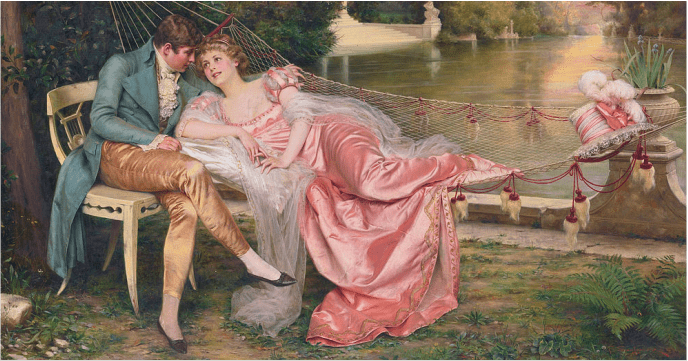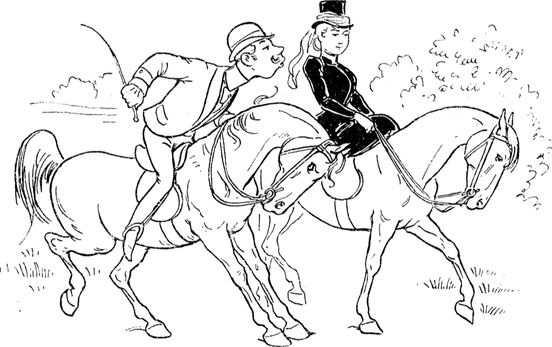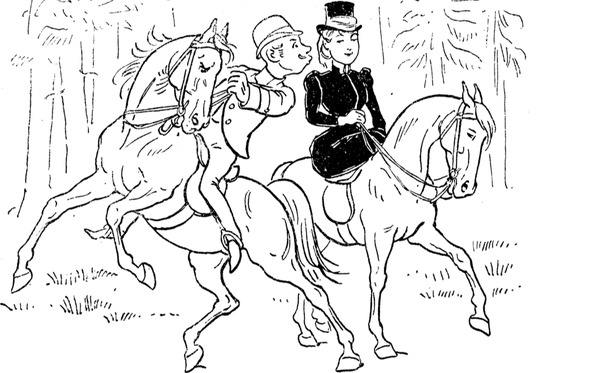SEXUAL DYSFUNCTION
FOR MANY, THE SOLUTION IS SIMPLER THAN EVER IMAGINED
Some of this has to do with OFF-LABEL PRESCRIBING. A 2014 article in Scientific American by Julia Calderone revealed that, “Doctors commonly use antidepressants to treat many maladies they are not approved for. In fact, studies show that between 25 and 60 percent of prescribed antidepressants are actually used to treat nonpsychological conditions.” Today we are going to discuss one of the many reasons that our national love affair with SSRI’s is a bigger deal than many of you may have realized. Here are some cherry-pickings from the peer-reviewed literature.
- “There is a high incidence of sexual dysfunction in the general population and sexual dysfunction is often an integral symptom of a depressive disorder. In addition, all antidepressants have effects on sexual functioning… The selective serotonin reuptake inhibitors (SSRIs) are clearly associated with delayed ejaculation, inability to ejaculate and absent or delayed orgasm. Furthermore, the incidence of sexual dysfunction obtained by patient self-report does not appear to reflect the true incidence of sexual dysfunction associated with antidepressant therapy.” From the abstract of a 1997 study published in the Oxford Journal of Psychopharmacology
- “Antidepressants, including the tricyclic antidepressants, monoamine oxidase inhibitors (MAOIs) and selective serotonin reuptake inhibitors (SSRIs), cause sexual dysfunctions such as decreased sexual desire, erectile difficulties and delayed ejaculation. Such sexual side-effects affect quality of life….” From a study published 17 years ago this month in the International Journal of Psychopharmacology
- “Sexual dysfunction secondary to the use of antidepressants, especially clomipramine or SSRI’s is an adverse effect that is often underestimated and according to earlier studies, this can affect approximately 60% of the patients. This presents as a decrease in libido, alterations in the ability to reach orgasm / ejaculation, and an erectile dysfunction or a decreased vaginal lubrication. This dysfunction appears to be related with the resulting increase in serotonin and with the stimulation of serotonin 5HT2 receptors.” From a 1999 issue of the Spanish medical journal Actas Espanolas de Psiquiatria. The study was authored by 21 different MD and Ph.D researchers
- “Antidepressants, especially selective serotonin reuptake inhibitors (SSRIs)… are frequently associated with sexual dysfunction. The incidence of sexual dysfunction is underestimated.” From a 2001 study in the Journal of Clinical Psychiatry
- “Sexual dysfunction has been observed in a substantial proportion of patients treated with all classes of antidepressants. In particular, SSRI use has been shown to be associated with sexual dysfunction.” From the abstract of a 2002 study (Sexual Functioning and SSRIs) published in the Journal of Clinical Psychiatry
- “Sexual dysfunctions such as low libido, anorgasmia, genital anesthesia, and erectile dysfunction are very common in patients taking selective serotonin reuptake inhibitors (SSRIs). It has been assumed that these side effects always resolve after discontinuing treatment… SSRIs can cause long-term effects on all aspects of the sexual response cycle that may persist after they are discontinued.” From the abstract of the January 2008 issue of the Journal of Sexual Medicine (Persistent Sexual Dysfunction After Discontinuation of Selective Serotonin Reuptake Inhibitors)
- “Sexual dysfunction is a common but often unrecognized side effect of many antidepressants. Patients classified with antidepressant-associated sexual dysfunction (AASD) reported significantly worse quality of life, self-esteem, mood, and relationships with partners, compared with non-AASD patients. Sexual dysfunction is a frequent occurrence during antidepressant treatment, and is associated with reduced quality of life and self-esteem, and negative effects on mood and relationships.” From the April, 2010 issue of the Oxford Journal of Psychopharmacology
- “There is a well-established relationship between sexual functioning and quality of life. Depression can cause sexual dysfunction (SD) and its treatment can often lead to restoration of sexual functioning. Use of antidepressants has also been associated with SD, with implications for treatment compliance and creation of further distress for the patient.” From the October, 2014 issue of Expert Opinion on Drug Safety (Sexual Dysfunction Associated with Major Depressive Disorder and Antidepressant Treatment)
- “With the exception of…. all antidepressants cause sexual side-effects. Selective serotonin reuptake inhibitors (SSRIs) may particularly delay ejaculation and female orgasm, but also can cause decreased libido and erectile difficulties…. This is often preceded by genital anesthesia. Also patients with eating disorders may suffer from sexual difficulties.” Cherry-picked from the abstract of of a 2015 paper (Psychiatric Disorders and Sexual Dysfunction) in the Handbook of Clinical Neurology.
According to the Cleveland Clinic’s ERECTILE DYSFUNCTION page, “the Massachusetts Male Aging Study reported a prevalence of 52%. By age 40, approximately 40% of men are affected. The rate increases to nearly 70% in men aged 70 years. The Massachusetts study data suggest there will be approximately 617,715 new cases of ED in the United States annually. Experience of sexual dysfunction was more likely among men in poor physical and emotional health.” Those are some crazy numbers, but Sexual Dysfunction isn’t just for men.
A year ago this month, the medical journal Systemic Reviews published a study (Prevalence and Predictors of Female Sexual Dysfunction: A Protocol for a Systematic Review) showing that Sexual Dysfunction in women is related to things like HEART DISEASE and certain AUTOIMMUNE DISEASES. They went on to say that…
“While Female Sexual Dysfunction (FSD) is often assessed in people with ill health, sexual dysfunction is an illness of its own entity and is also prevalent in non-patient populations. FSD is indeed significantly more frequent among women with diabetes than those without. These were the results of 26 studies which employed the Female Sexual Function Index (FSFI) by Rosen to measure dysfunction. A low FSFI score (indicator of dysfunction) was also associated with high body mass index Another recent review from 2012 measured the bidirectional association of depression and sexual dysfunction among men and women. Atlantis and Sullivan pooled odds ratios or relative risks across studies using random-effects meta-analysis models. The analysis confirmed that depression increased the risk of sexual dysfunction and that sexual dysfunction increased the odds of depression.”
We cannot be too surprised that numerous health problems are being associated with FSD. Healthline.com carried a fascinating infographic called Depression by State, showing the states with the highest rates of Depression. If you look at the CDC’s infographics on Obesity by State, you’ll realize how similar they look — that states with the highest rates of Obesity are the states that also happen to have the highest amount of Sexual Dysfunction (HERE). It’s part of an unhappy triad of Obeisty, Depression, and Sexual Dysfunction. What are people (particularly women) prescribed for these problems? Antidepressants, of course. We’ve known for a very long time that treating in this fashion was creating a ticking time bomb. Case in point; it has been nearly a decade since Dr. Richard Balon’s study, SSRI-Associated Sexual Dysfunction, was published in the American Journal of Psychiatry.
“Occasional reports of sexual dysfunction associated with use of monoamine oxidase inhibitors and tricyclic antidepressants began to appear during the 1960s and 1970s. With the arrival of newer antidepressants in the late 1980s and 1990s, reports of sexual side effects increased, notably with regard to use of selective serotonin reuptake inhibitors (SSRIs)… Since the introduction of SSRIs, sexual dysfunction associated with these agents has been reported in numerous case reports, case series, and open-label and double-blind studies; and in recent years it has been frequently mentioned in efficacy studies and discussed in critical reviews.”
In another academic paper published by Balon and colleagues in Current Psychiatry (How Do SSRIs Cause Sexual Dysfunction?), he went on to say that, “Although selective serotonin reuptake inhibitors (SSRIs) are frequently prescribed and are better tolerated than older antidepressants, side effects such as sexual dysfunction limit patient acceptance of these medications.” How high are the sexual side effects of SSRI meds? “Balon suggested that the incidence of SSRI-associated sexual dysfunction is 30% to 50%, although others have reported higher incidences.” Much of this has to do with the fact that these drugs not only affect SEROTONIN, but the neurotransmitters of the 5-HT family, which are the same neurotransmitters associated with problems like FIBROMYALGIA and CHRONIC FATIGUE.
THE MEDICAL SOLUTION TO SEXUAL DYSFUNCTION?
TAKE MORE DRUGS!
Flibanserin is an interesting drug simply because of its history. It was developed by Boehringer Ingelheim (initially as an SSRI Antidepressant), being presented to the FDA for acceptance in June of 2010. After failing to receive a single vote of approval, B.I. abandoned the drug, selling it to a company called Sprout Pharmaceuticals. Sprout did a couple more safety studies (one pertained to whether or not is was safe to drive after taking it) and resubmitted it to the FDA last month — almost five years to the day after the first submission — where it was approved by a vote of 18-6. What changed in that half decade? Nothing much — except for the fact that the feminists were howling about the unfairness of it all (Sprout used an effective propaganda campaign known as “Even the Score“). A very vocal group of women got what they wanted by robustly denouncing the FDA as a sexist organization because they had given the ‘thumbs up’ for sexual drugs for males, but not for females (there are currently 26 such drugs for men and other than Flibanserin, none for women).
The problem is, according to Deborah Kotz’ June 16, 2010 issue of US News and World Report (Flibanserin Failure: Female Viagra Drug Disappoints)…..“The drug didn’t boost women’s desire any more than a placebo in two clinical trials.”
In response to the pressure to be ‘politically correct’, the FDA caved. I use the word “caved” because not only does this drug carry some potentially serious side effects (but then again, WHAT DRUGS DON’T?), but using the most generous language possible, it would be stretching things to categorize the drug’s efficacy as even “modest“. It is currently being marketed as being able to increase the number of monthly “satisfying sexual events” for women who have been diagnosed with Hypoactive Sexual Desire Disorder (HSDD) — a “disease” that many critics claim was made up for the express purpose of selling and promoting this drug (see last week’s study in the Journal of Medical Ethics — Hypoactive Sexual Desire Disorder: Inventing A Disease to Sell Low Libido). How modest are the results? After accounting for the “PLACEBO EFFECT,” Flibanserin increased the number of satisfying sexual events for women (not necessarily defined as an orgasm) by an average of one half to one per month. Gulp!
BETTER THAN VIAGRA, FLIBANSERIN,
OR ANTIDEPRESSANTS?
Because, “Research has found a positive correlation between sexual frequency and happiness,” the researchers were wondering if doubling the amount of sex couples have, would increase their amount of happiness. They actually found that because the sex was “mandatory,” the couples from group two found themselves enjoying it less, actually ending up with a slightly lower overall “happiness” level than when they started the study. But what about those couples who are having little or no sex?
Rather than resort to the drugs that your doctor will invariably prescribe you, there are things that you can do to improve this problem on your own. The cool thing is that when you do things like (or at least similar) to what I suggest, you’ll probably end up solving a boatload of other health problems as well. How’s that for a side effect?
- UNDERSTAND DEPRESSION: As I’ve been showing you, both Depression and the drugs used to treat it are major known causes of Sexual Dysfunction. Educate yourself concerning both. Because knowledge is power, you need to be sure to read everything I have written on Depression —- including the fact that it is one of the myriad of health problems caused by inflammation (HERE or HERE). Control your body’s levels of Systemic Inflammation, and at the very least, you’ll improve your sexual situation. It is also critical you realize how intimately related GUT HEALTH is to Depression.
- CONTROL BLOOD SUGAR: BLOOD SUGAR DYSREGULATION ISSUES are probably the number one factor that will adversely affect your sexual function. Much of this has to do with the fact that the function of your entire ENDOCRINE SYSTEM (TESTOSTERONE and the various FEMALE HORMONES) is intimately related to your levels of Blood Sugar —- even in the absence of full-blown Diabetes (HERE). In fact, the brutal truth is that sugar turns men into women, and women into men (HERE). If the way you eat is not doing an excellent job of regulating your blood sugar, start looking into a different way of eating (I prefer PALEO or KETO).
- DEAL WITH YOUR BELLY FAT: For decades, BELLY FAT has been a top predictor of Sexual Dysfunction in men (see “Testosterone” link in previous bullet), probably because it is so intimately related to Blood Sugar. As I have shown you through previous links on this post, it has recently become a predictor of female Sexual Dysfunction as well.
- DEAL WITH XENOHORMONES: XENOESTROGENS are bad news for both men and women. One of the best ways to go about this is by making sure that your body can BIOTRANSFORM properly.
- EXERCISE: There are about a million benefits of exercise, including increased blood flow. If you take a look at the studies on PubMed linking regular moderate exercise to improved sexual health, you’ll quickly realize that it would take hours to go through all of them. A September, 2013 issue of Cochrane Collaboration (Exercise for Depression) reviewed 39 studies comparing exercise to drugs. “When compared to psychological or pharmacological therapies, exercise appears to be no more effective.” That’s a nice way of saving face, but the meaning is the same. Exercise might not be more effective than drugs, but it’s not less effective either. There were four similar meta-analysis in 2014 which all came to similar conclusions. HERE some posts on the type of exercise I feel is best for most people.
- OTHERS: HERE is my general protocol for dealing with the underlying physical issues related to Sexual Dysfunction. As for emotional issues, spiritual issues, or CERTAIN ADDICTIONS, make sure to see a qualified counselor.
One more thing for the women struggling with Infertility. According to a recent study (Incidence and Prevalence of Sexual Dysfunctions in Infertile Women) from the European Journal of General Medicine “Infertility may interact with a woman’s sexual expression by causing or exacerbating sexual problems as a consequence of the diagnosis, investigation and treatment of infertility. Conversely, sexual problems may contribute in infertility.” In other words, the fact that some of the crazy treatments given for INFERTILITY can cause sexual dysfunctions is easy to buy. Not so well understood is the fact that it cuts both ways — Sexual Dysfunction has been shown to be intimately related to Infertility. Once you begin to understand PCOS, this will make more sense.



